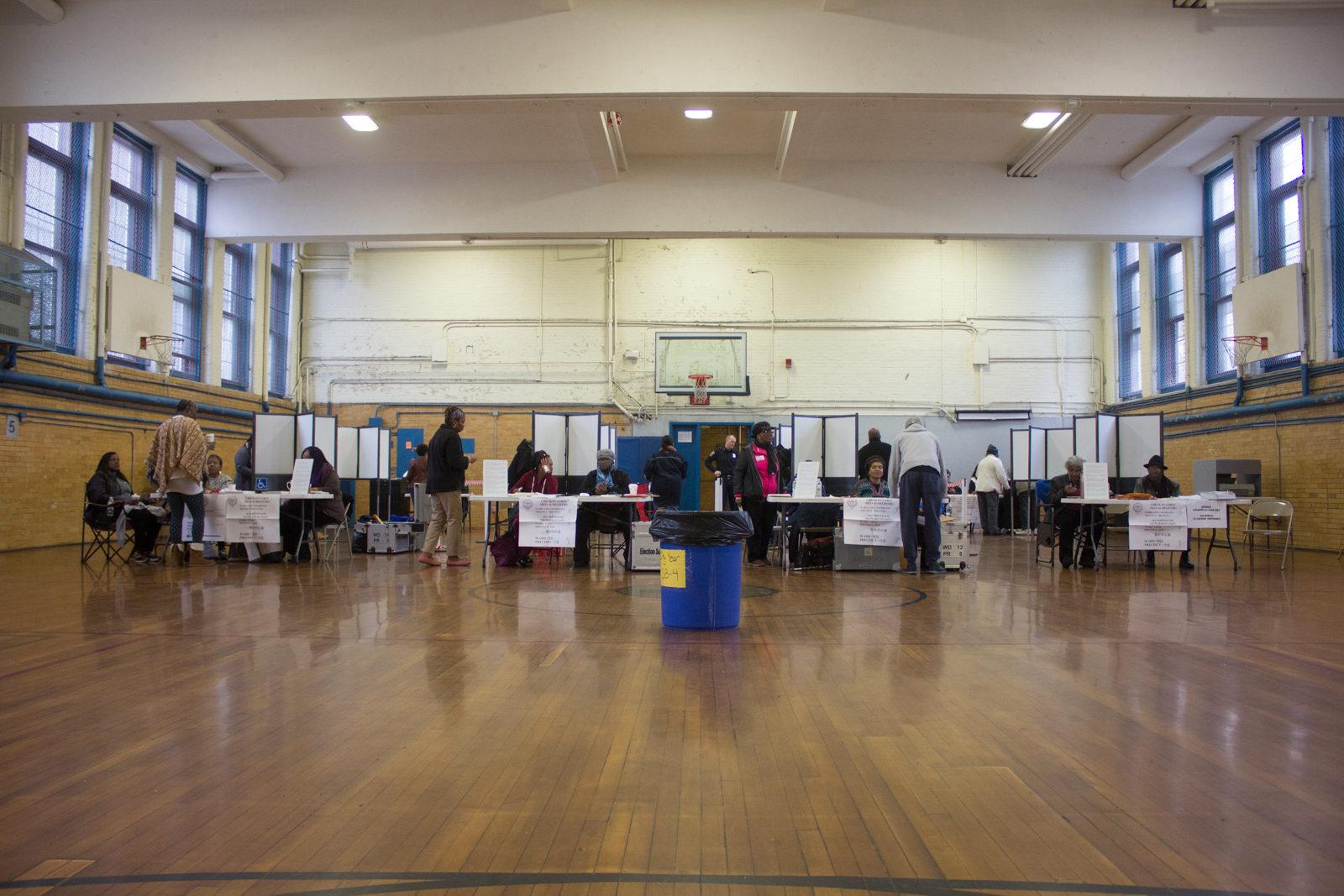Voter turnout yesterday was abysmally low, with just 28 percent of residents getting out to the polls.
Sure, it wasn’t the most exciting election — we were looking at just a smattering of city council races and a mayoral race with a strongly favored incumbent. There was no scandal to speak of. Then again, in 2016 we had that, and we still had the lowest presidential election turnout the United States had seen in 20 years.
But when it comes down to it, our low voter turnout doesn’t have anything to do with the year or the candidates or the election itself — it has to do with us. We, as a city and as a society, have made no concerted effort to make change, and that lack of effort has shown.
Our pattern of low voter turnout continues to recur with agonizing predictability. And yet, the only people actively working to improve Boston’s turnout are a handful of nonprofits and the actual candidates running for office. These efforts are well intentioned, but they are clearly not doing nearly enough. The solution must come in the form of a mass movement, one from the government itself.
In some countries, Election Day is a national holiday — people are given the day off of work for the sole purpose of making sure everyone has the time to cast their vote. In other countries, the government makes sure that every single citizen is bombarded with all the information they might need to know before the election. They make sure their citizens know exactly who’s running, how to register and where to vote. The reason that the United States has such low turnout is simple — it’s because we aren’t making any real effort to change it.
And this effort doesn’t even have to come from the federal government. With the kind of voter suppression tactics that have become the norm in the GOP these days, we really wouldn’t expect it to. What we can expect, however, is for Massachusetts to step up and become a beacon of democracy, a place with unparalleled voter turnouts, a state that other states can look toward.
There’s a lot of things we could do to work toward achieving that, but a big one would be enacting same-day voter registration policies. Currently, Massachusetts voters have to register to vote at least 20 days before Election Day. Despite that fact, in 2016, Massachusetts still saw the sixth-highest voter turnout rates in the country — but of the five states with even higher turnout, all but one had same-day registration policies. Twenty days wait might not sound like much, but that kind of time would make a world of difference to voters.
Although voter turnout has been a problem all across the board, in elections of every shape and size, it is also clear that local elections have been suffering more than most. In the frenzy of presidential elections, people have been prioritizing national politics over local ones. This is easy to do, but it’s an urge that we need to fight — because when it comes down to it, it doesn’t matter which candidates are making headlines, it matters which ones are making a difference.
The importance of the federal government is indisputable, but on a day-to-day basis, they aren’t the one’s affecting the voters lives. Public schools, housing, transportation — all the things that make the most tangible differences in people’s lives are not things decided by the president or even by Congress, they’re things decided by mayors and city councilors. That’s why these local elections are so important.
Even college students, who very well might move away before a given candidate’s term is up, have a lot to care about at the local level, because in local politics, a lot of change can be made in just a few years. But the problem is these young people aren’t voting.
The reason for this isn’t because college students are too busy or lazy or apathetic about government, though these things may be true. They’re not voting because a lot of the time, they are splitting their time between two different cities in two different states. They don’t feel entirely at home in either place, and aren’t invested enough or know enough about either area’s government to be politically active. And on top of all that, college students have to figure out the process of getting an absentee ballot and dealing with long registration turnaround times. All in all, there’s a lot more we could be doing to help students vote.
This election has come and gone, but that doesn’t mean it’s time to sit back and wait for the next one. By this time next year, Boston could be making headlines for record high voter turnout rather than record low. Let’s make that happen.
























































































































